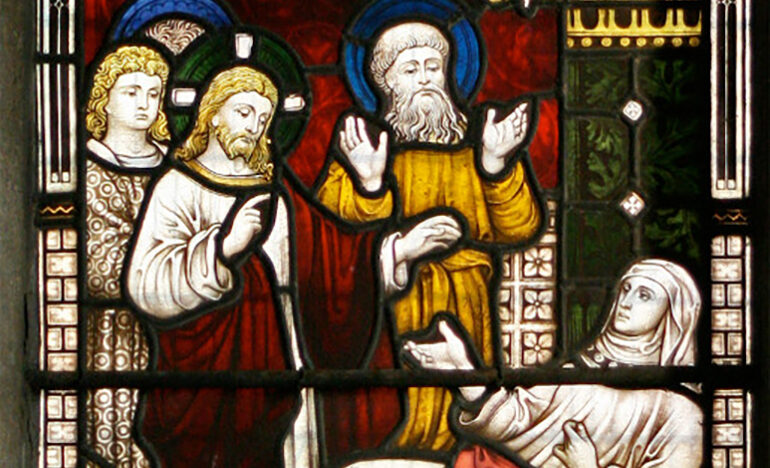Video Series: What the Lord Requires

By Kathy Keary
Our full series in the Contemplative Prayer Video Series is here.
Today we will engage in lectio divina, sacred reading, with one of my favorite Scripture passages from Chapter 6 of Micah. This passage speaks to what the Lord requires of us as we journey through life, and it is food for our Lenten reflection.
First, I would like for you to hear what is written about lectio divina in Spiritual Formation: Following the Movements of the Spirit, a book by Michael J Christensen and Rebecca J. Laird published after Henri Nouwen’s death. They encapsulate Nouwen’s spirituality and wisdom as expressed in his many works.
Lectio divina means to read the Bible with reverence and openness to what the Spirit is saying to us in the present moment. When we approach the Word of God as a word spoken to me, God’s presence and will can be made known. The regular practice of lectio divina presents occasions when my story and God’s story meet, and in that moment something surprising can happen. To read the Bible in this way means therefore to read “on my knees” – reverently, attentively, and with the deep faith that God has a word for me in my own unique situation.
The final step of lectio divina is resting in silence. In Henri Nouwen’s wisdom, the book states:
Without silence the Word of God cannot bear fruit… As long as our hearts and minds are filled with words of our own making, there is no space for the Word to enter deeply into our hearts and bear fruit. In and through silence the Word of God descends from the mind into the heart, where we can ruminate on it, masticate it, digest it, and let it become flesh and blood in us… Without silence the Word cannot become our inner guide; without meditation it cannot build its home in our hearts and speak from there.
In the video, I walk you through the steps with the following passage, Micah 6:6-8.
With what shall I come before the LORD,
and bow myself before God on high?Shall I come before him with burnt offerings,
with calves a year old?Will the LORD be pleased with thousands of rams,
with ten thousands of rivers of oil?Shall I give him my first born for my transgression,
the fruit of my body for the sin of my soul?He has told you, O mortal, what is good;
and what does the LORD require of youbut to do justice, and to love kindness
and to walk humbly with your God.
You will find the steps of Lectio Divina in our article, “Contemplative Prayer: The Five Steps of Lectio Divina.”
Join us next week as we continue our spiritual walk through the sacred season of Lent – a time of emptying, reflection, prayer, and transformation.
Join us Thursday evening, April 7 at the Renewal Center or online for Taize Prayer led this month by Fr. Mark Miller. Taize is a moving, contemplative practice that includes chants, Scripture, reflection, and periods of silence with candles enhancing the ambiance.
As we continue through Lent, let us hold the people of Ukraine in our hearts and in our prayers.
God Bless.
Note: Never miss an article published on the Renewal Center website: Sign up to receive our newsletters.
[Kathy Keary, spiritual director, holds a bachelor’s degree in education, a master’s degree in theological studies, and completed Sophia Center’s Souljourners Program, an intense study of spirituality and spiritual direction. Kathy believes that the Divine is present and active in all of life and encourages others to be awakened to the God in all including the Divine within. She enjoys accompanying others on their journey to wholeness discovering the person they were created to be.]
Photo 47255529 / Jesus © Toma Bonciu | Dreamstime.com
We’d Like to Hear from You!
We’d like to know what you think about this article. Send us a comment using the form below. Do you have a suggestion? Is there something you want to learn more about? Send us a note.
Related

Making a Banner for Lent Part 2
A Coffee with Padre Video
Fr. Timothy finishes his Lenten banner and continues his reflections on how colors and materials become potent symbols that bring the Lenten season alive. The final banner serves as a visual reminder of our spiritual journeys.

Lent Video Four — Guided Meditation: ‘Traveling in the Dust of the Rabbi’
In this video, Fr. Ron reads the Gospel, Mark 1:29-34, for you and then leads you through a guided meditation, taking you deeper into that story. He calls this experience “an example of traveling in the dust of the rabbi.”
Categories
Assembling God's Puzzle Coffee with Padre Cooking & Spirituality Encounters of the 4th Kind Family Matters Reflections on the Eucharsitic Prayers Spiritual Resources Taize Prayers The Contemplative Life Traveling with Pilgrims of Hope Uncategorized Videos Week of Prayer for Uhristian Unity When you need a little help
